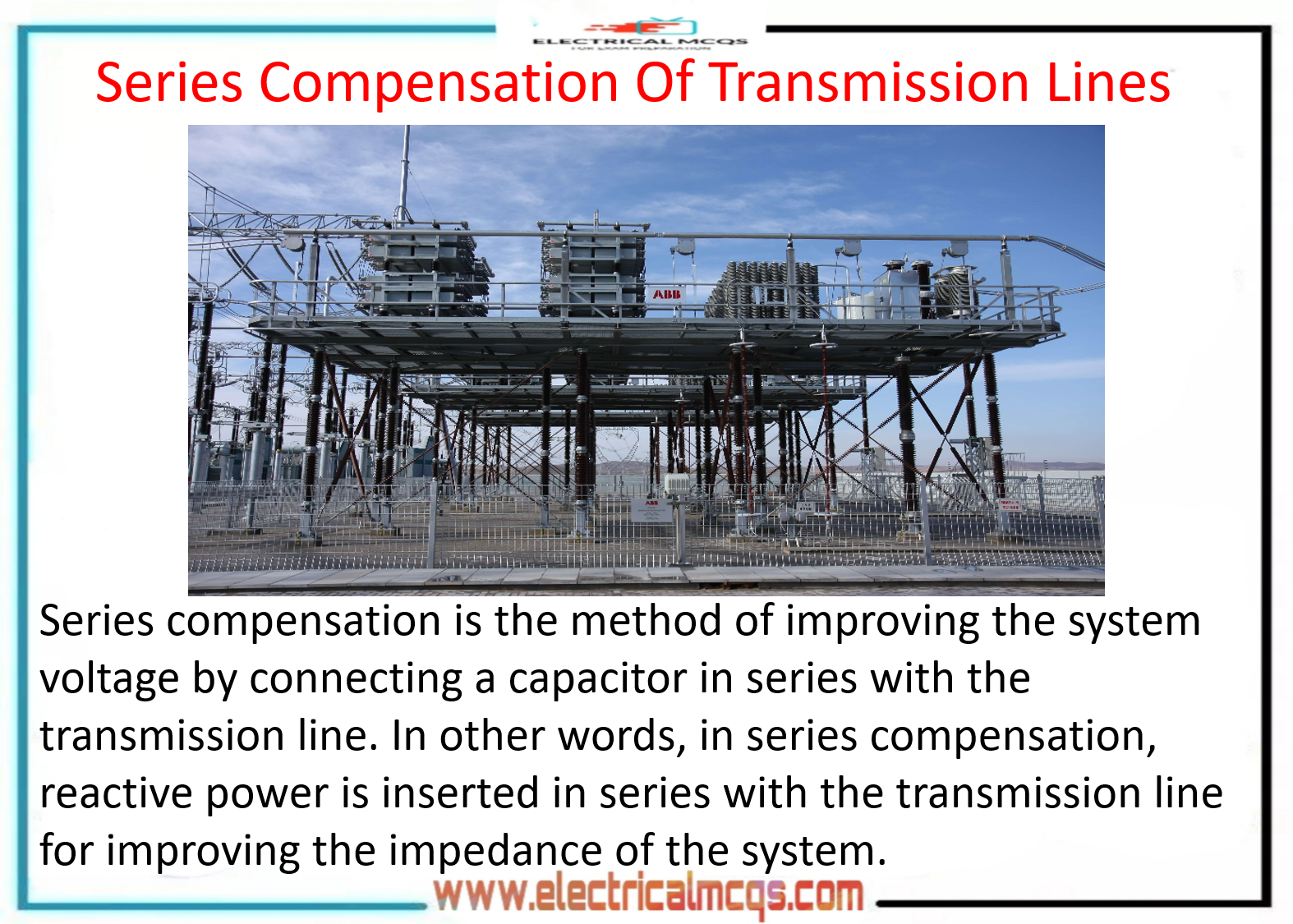Series Compensation:
Advantages of Series Compensation :
1. Series compensation is somewhat cheaper than shunt compensation.
2. Losses in series compensation are lower the in shunt compensation.
3. Series compensation lowers the critical or collapse voltage. Thus changes of voltage collapse are reduced.
4. Series compensation can help in load division in parallel circuits.
5. Series capacitors are generally self regulatory and require little or no control equipment
6. Series compensation improves system stability (both steady state and transient state).
Disadvantages of Series Compensation :
1. Series compensation is effective only during heavy loads. During light load conditions shunt compensation has to be provided.
2. Whenever an outage occurs on a line with series compensation, the series compensation has to be removed. This may cause the overloading of other parallel lines.
3. If series compensation is to be added to an existing system it is generally necessary to have it on all lines in parallel.
4. System outages may cause high voltage on one side of series capacitors.
5 Additional expenses are needed to solve the problems of sub-synchronous resonance, line protection etc.
Shunt Compensation:
Advantages of Shunt Compensation :
1. Shunt compensation provides a better control of voltage profile.
2. It is effective even in off peak conditions.
3. Shunt compensation provides fast control over temporary overvoltages.
Disadvantages of Shunt Compensation :
1. It is more expensive than a series compensation scheme.
2. Its overload capability is limited.
3. To reduce the overall cost, it is preferable to use a mechanically switched capacitor bank in addition to shunt compensation


